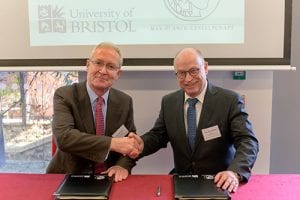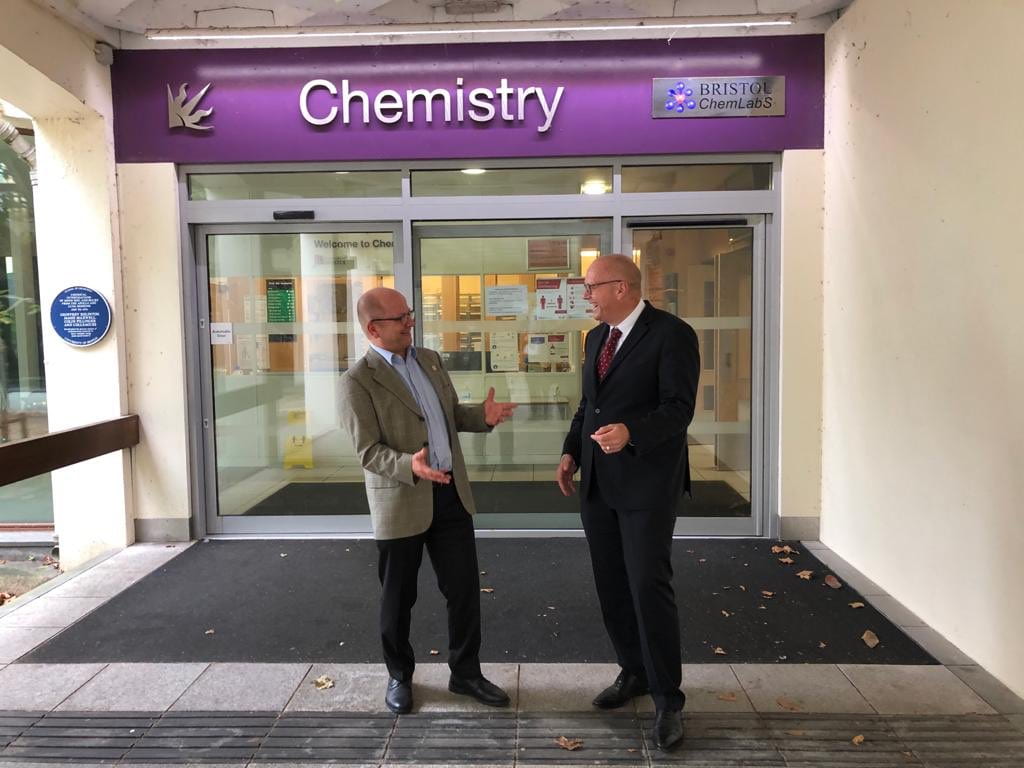On Wednesday 2 September, the German Ambassador to the Court of St James’s, Andreas Michaelis, paid a visit to the University of Bristol. Michaelis came to discuss with University representatives the opportunities to collaborate with Germany across research, education and mobility. The visit was a significant step in building and fostering the University’s relationship with the new Ambassador, in his first official trip to the UK outside of London.
The delegation toured the Max Planck Centre for Minimal Biology in the School of Chemistry and the GW4 Facility for High-Resolution Electron Cryo-Microscopy in the Life Sciences Building. Established in 2019, the Max Planck Bristol Centre consists of Directors based in both Bristol and Germany in a truly interdisciplinary and international partnership, set up by the University of Bristol and the Max Planck Society. The Centre pursues game-changing research and postgraduate training in the emerging field of minimal biology to address some of the most complex challenges in fundamental science.

The GW4 Facility for High-Resolution Electron Cryo-Microscopy is closely aligned with the Wolfson Bioimaging Facility and provides world class cryo-microscopy and analysis tools, enabling researchers from diverse disciplines across the Great West region and beyond to study molecular processes using single-particle cryo-EM or cryo-tomography.
Director of the Max Planck Bristol Centre, Imre Berger, discussed the importance of international cooperation in science with Herr Michaelis on his tour of campus. The German delegation also met with Bristol Heads of School and Pro Vice-Chancellors, as well as members of the Bristol Max Planck and Cryo-EM facilities to observe our joint Europe-Bristol research endeavours. The Pro Vice-Chancellor for Global Engagement Erik Lithander
said: “We were delighted to be able to welcome the Ambassador to the University to have the opportunity to showcase some of the terrific research being done in collaboration with German colleagues and institutions. The University of Bristol is determined to keep European collaboration at the centre of its research strategy, and opportunities such as the Ambassador’s visit are an excellent way to accentuate this.”


